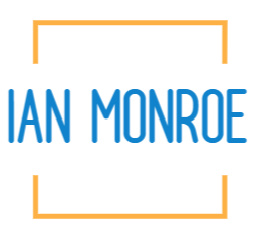
Forget the cubicle, get off the couch, and ditch the coffee shop.
Freelance technology workers these days have a new way to get things done –coworking (enthusiasts insist there is no hyphen). A new coworking space, opened in January, aims to provide Chicago’s independent workers with a different kind of occupational environment.
The COOP is a hip office space where technology workers such as graphic designers, programmers, and Internet experts can rent a desk for a day, a week or a month at a time. Instead of punching the clock at a soulless cubicle farm, freelance workers can call their own shots. Instead of writing code on the couch at home, where a variety of diversions threaten to sabotage productivity, independent contractors and telecommuters can get the benefits of having an office without the expensive overhead of leasing their own space.
The COOP space, located on Fulton Market, once housed a chicken processing business. The exposed brick walls laden with art create a comfortable, relaxed workspace. Young entrepreneur Sam Rosen, 23, operates his web design business,One Design Company, in one section of the loft. The other portion is reserved for independent workers and freelancers to use for coworking. The easily reconfigurable loft space can comfortably house perhaps a half dozen such workers at a time.
Coworking enthusiasts say that the spaces aren’t just useful for getting work done, but also can be a resource for generating new business and for fleshing out new ideas. “It’s an incubator model,” said Rosen. “We’re not by any means asking for a stake in anyone’s venture, but the idea is if they come here and they’re starting up something, and it works, they’re going to need help. And we can help, or we know people to help. That’s cool, and that seems a lot more natural and nicer.”
The coworking movement began several years ago in California, but has rapidly become a global phenomenon. “It’s pretty widespread,” said Eric Marden, a freelance web programmer and coworking advocate. “It used to be where there would be one city in every state, and now multiple cities in the state, and sometimes multiple spaces in one city are happening, and that’s become more prominent. There’s a third one about to open in Austin.”
“It’s great,” said Brett Yates, a freelance computer programmer and patron of the COOP space. “I spent probably at least a year working out of my apartment, and doing that just kind of drove me insane. I started to find I was getting a lot less done – I’d go to coffee shops and get more done in two hours than in a full day at home.” That lack of productivity drove Yates to explore coworking. “I got out and kind of checked out a couple different places and this one seemed exactly like I was looking for.”
Chicago hasn’t yet gotten completely on board with the idea of coworking, but it’s catching on. “It was kind of a slow start for us, getting things out there and advertising,” said Linsey Burritt, a designer for One Design Company and a leader of the COOP. “People in Chicago haven’t heard about it as much as other cities.”
Workspaces at the COOP rent for $20 per day, $90 per week, or $300 per month, and include T-1 Internet access.
An informal “coworker visa” program lets members of one coworking space use the facilities of other coworking groups when they travel. Open sharing of ideas and resources is encouraged. “Any time we’ve communicated with anybody, people have come to us, or we’ve gone to them, people are with open arms,” Rosen said. “They’re like, ‘Here’s what I’ve got, let me help you. How can you help me?’ It makes the pie bigger.”
Marden was utilizing the COOP space to work on programming projects while visiting Chicago with his family. He helps run a similar space in Orlando, Fla., and traded ideas with Rosen and Burritt during his stay. “The coworking [in Florida] kind of grew out of our BarCamps [open conferences on technology and culture],” Marden said. “For us, it’s the physical hub now. Sort of the creative club house for all the stuff that was already happening all over the city, but it kind of lets us gel and have an area to work. We still all do our own thing, but we all kind of come together for that sort of stuff.”
Coworking may not yet be mainstream, but Rosen said it has caught the attention of many successful independent professionals. “We’re lucky because we’re busy, but you hear so much about how people are struggling,” Rosen said. “People who come here are not struggling. People who come in here are thriving. The people who are sitting down working, they’re here because they have too much work to do. They need a place to focus. That’s interesting.”
Note: This story was first published on the Medill Reports website on 4/28/2009, as well as on the Windy Citizen on 4/29/2008. It’s republished here for my own archives.
